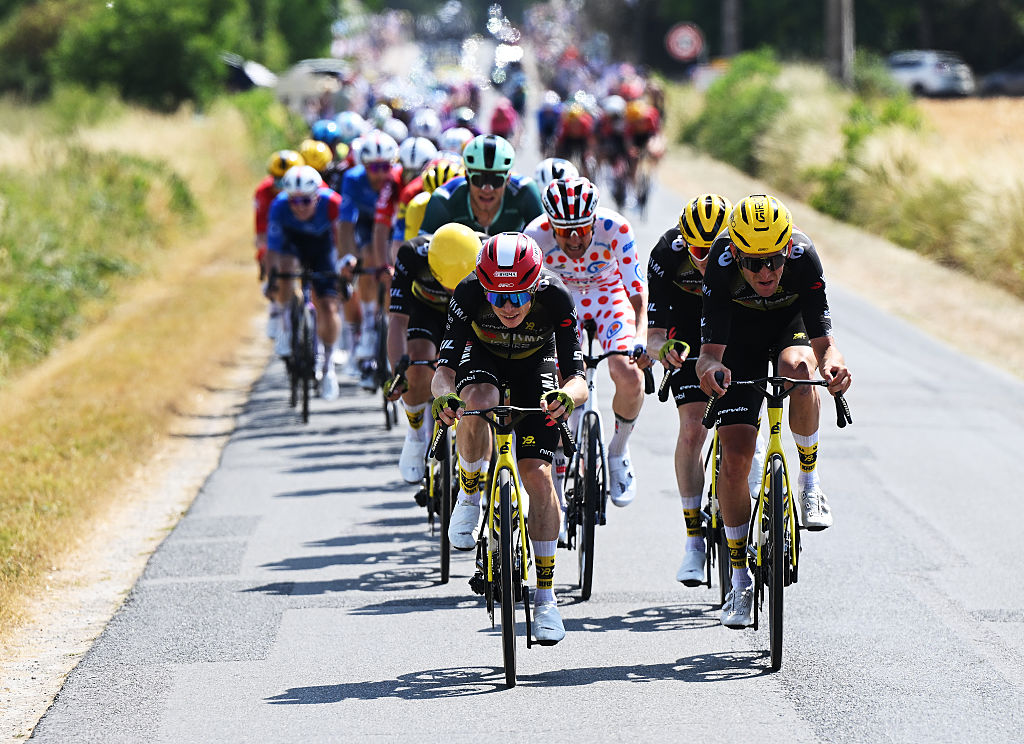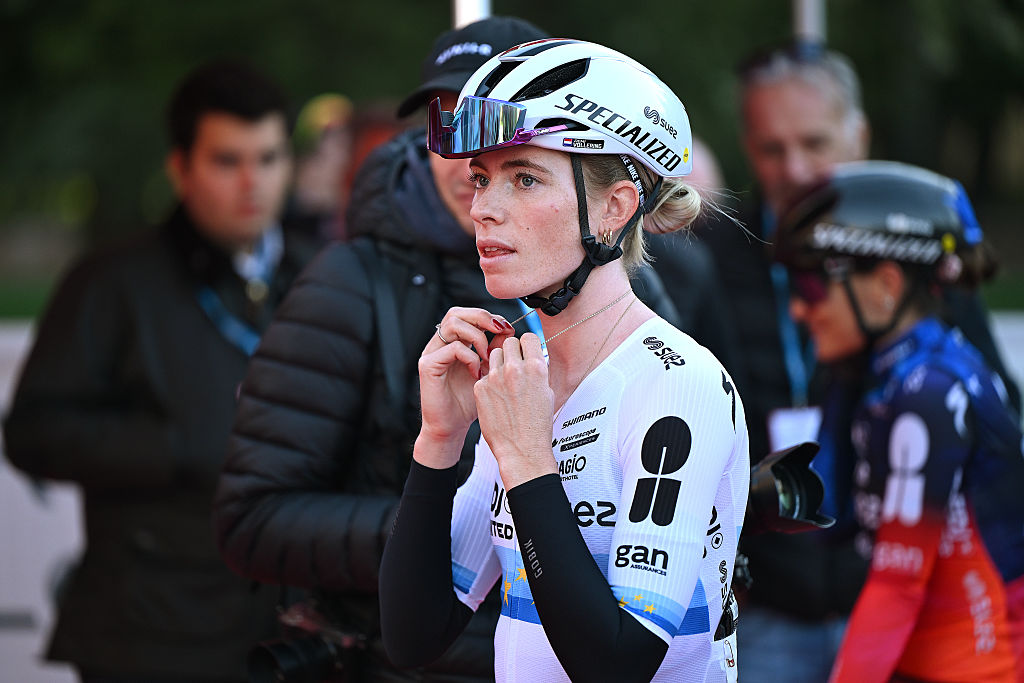'I would be ashamed to have crashes in my race if I was an organizer' - Visma's Richard Plugge calls for better race safety
Team manager believes race organisers can do more to reduce crashes and injury

The latest race content, interviews, features, reviews and expert buying guides, direct to your inbox!
You are now subscribed
Your newsletter sign-up was successful
The speed, intensity and global reach of the Tour de France always highlights the dangers and consequences of crashes in professional cycling and so sparks calls for improved safety in the sport.
Jasper Philipsen (Alpecin-Deceuninck) won the opening stage in Lille but then crashed out on stage 3. Filippo Ganna (Ineos Grenadiers) crashed on stage 1 and was removed from the race due to concussion.
Other crashes have happened almost daily. On Friday, Jack Haig (Bahrain Victorious) suffered concussion, and Eddie Dunbar (Jayco-AlUla) was also injured and unable to continue in the Tour after a high-speed crash with just six kilometres to race. João Almeida (UAE Team Emirates-XRG) was involved in the same crash and was forced to abandon the Tour during stage 9, leaving race leader Tadej Pogačar without a key support rider.
Former Soudal-QuickStep Team Manager Patrick Lefevere recently suggested one the Belgian's team's sponsors consider crashes and their impact on the sport as a major problem for their investment in the sport.
Speaking after a week of intense racing at the Tour, Visma-Lease a Bike Team Manager Richard Plugge again highlighted the need for the sport to avoid dramatising crashes, chastising Tour de France organiser ASO.
"You don't celebrate cycling by showing crashes," Plugge told Cyclingnews, Velo and the Guardian, perhaps referring to the latest Netflix Tour de France Unchained series and the Tour's own promotional videos.
"You celebrate cycling by showing the sprint between the big guns on the Mur de Bretagne and other sprints, not the crashes. I've told ASO that, but they include crash footage in their promotional videos for the Tour de France," Plugge said.
The latest race content, interviews, features, reviews and expert buying guides, direct to your inbox!
"I would be ashamed to have crashes in my race if I was an organizer, I would almost hide them. We should be ashamed of showing crashes to the world, because it's not good."
The directeur sportif for Plugge's team, Grischa Niermann, pointed out that crashes are part of cycling. Fortunately the sport is slowly releasing the impact crashes have on the sport and especially on the riders' health.
SafeR
The UCI and the sports' stakeholders have created the SafeR project, which monitors crashes and tries to understand why they happen and how race routes and rider behaviour can be improved. The UCI has introduced a yellow card system and increased scrutiny to punish riders who race dangerously, with some riders on the Tour already racing with the risk of expulsion if they receive a second yellow card.
SafeR's data suggests that 29% of the crashes they analyse are caused directly by rider mistakes. Key points in races, where riders are positioning to be at the front such as cobbled sectors, sprints and climbs are considered the root of 12% of incidents, as are wet or slippery roads. Other incidents stem from descents, traffic furniture and feed zones.
Plugge has done the maths and believes that 71% of crashes are due to the race route and race organisers. He wants them to do more to improve safety, describing it as the 'low hanging fruit' of things that can be done to improve race safety.
"29% is caused by rider behavior and but the remaining 71% can be broken up into different parts. But if you look at it, you can all bring it back to race circumstances, let's say so it's the race parcour, like steep descents or a speed bump, that's the parcour in my opinion," Plugge said.
Plugge had a conversation with UCI President David Lappartient about safety when the Tour de France was in Brittany on Friday, claiming that they agreed on the need to do more. Plugge helped create SafeR but then he and his former Visma-Lease a Bike COO Jaap van Hulten were ousted as the UCI took control of SafeR with the sport's core stakeholders.
"Let's look at the low hanging fruit first and let's not be distracted by people talking about gear ratios," Pugge said, dismissing the idea of a gear restriction test in this year's end of season Tour of Guangxi race in China.
"The low hanging fruits are the race routes and the race environment. Organizers should do a better job, not put speed bumps 150 metres before the finish line, for example," Plugge said.
Plugge is critical the way SafeR is now run, often describing it as a 'political' ran organisation. Those directly involed in SafeR dispute those claims.
"We wanted to use data and use experts. That's how safeR was set up. Today it's a political thing. As we say in Dutch, we left the church in the middle. meaning that there's no real decisions are being made," he said.
"SafeR is not an independent organization like the International Testing Agency that manages anti-doping. We should really force organisers and teams to make better safety decisions.
"The idea of safer was to help everyone in the sport because we are in it all together. We're in the same boat. We can solve the safety issue, we're a big sport."
The Tour de France is the biggest race in cycling, and a Cyclingnews subscription offers you unlimited access to our unrivalled coverage. Get all the breaking news and analysis from our team on the ground in France, plus the latest pro tech, live race reports, and a daily subscriber-only newsletter with exclusive insight into the action. Find out more.

Stephen is one of the most experienced members of the Cyclingnews team, having reported on professional cycling since 1994. Before becoming Editor-at-large, he was Head of News at Cyclingnews. He has previously worked for Shift Active Media, Reuters and Cycling Weekly. He is a member of the Board of the Association Internationale des Journalistes du Cyclisme (AIJC).
You must confirm your public display name before commenting
Please logout and then login again, you will then be prompted to enter your display name.
